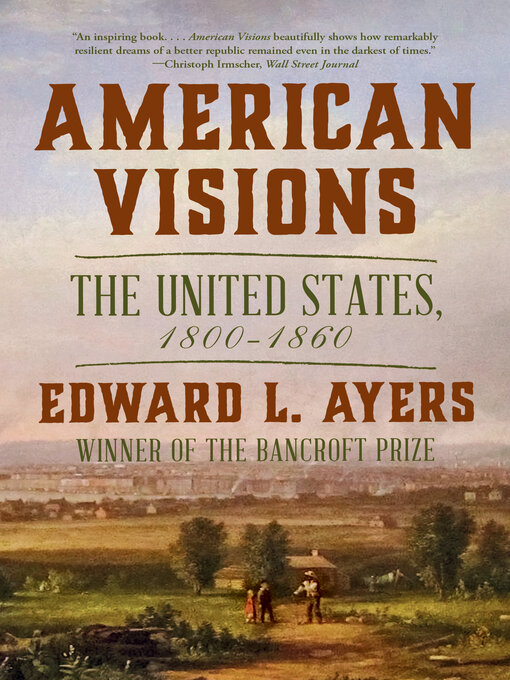A leading historian's absorbing narrative of America's formative period, when voices of dissent and innovation challenged the nation.
With so many of our histories falling into dour critique or blatant celebration, here is a welcome departure: a book that offers hope as well as honesty about the American past. The early decades of the nineteenth century saw the expansion of slavery, Native dispossession, mass immigration, and wars with continental neighbors. And yet eccentric visions altered the accepted wisdom; voices from the margins moved the center; acts of empathy defied self-interest. Edward L. Ayers's rich history examines the visions that moved Frederick Douglass, Margaret Fuller, and the Native American activist William Apess to challenge vastly powerful practices and beliefs. Melville and Thoreau, Joseph Smith and Samuel Morse were similarly moved to harness their creativity to forge new paths forward. These visionaries and critics built vigorous traditions of innovation and dissent into the very foundation of the nation.


